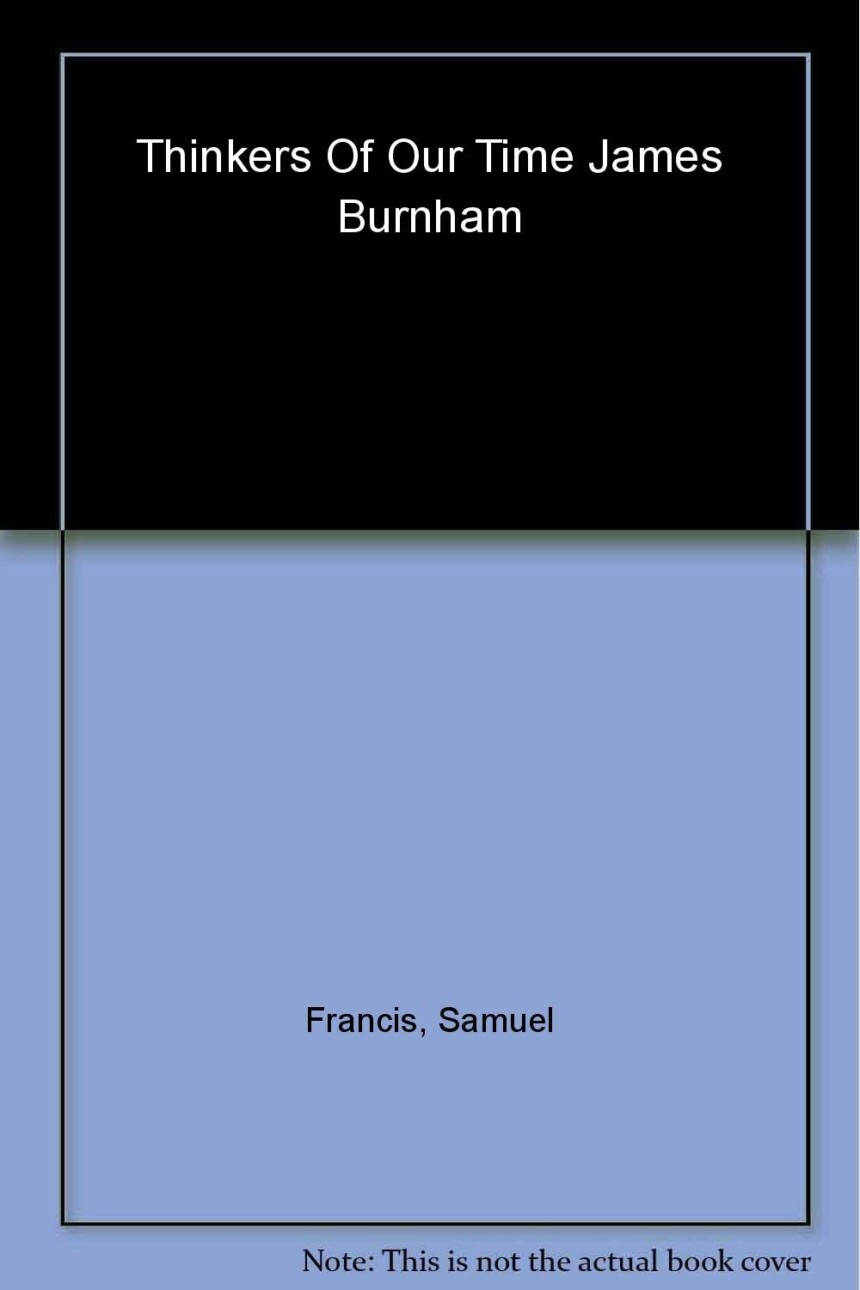This second edition of Samuel Francis’s monograph on the political thought of James Burnham (1904-1987) is a fascinating exposition of a remarkable body of work. Francis focuses on the thought and not the man, on the books and columns—especially those printed in National Review—produced during Burnham’s most interesting period as a writer, which extended from his break with Marxism in 1940 to the end of his career in 1978. Francis’s work on Burnham has three major levels of appeal, each in itself of compelling interest.
The first of these is the ostensible one. James Burnham’s most important books—probably The Managerial Revolution and The Machiavellians—and his later articulation of the challenge of communism and its inherently tyrannical nature, as well as various of the positions he advocated in the 1940’s and 50’s and those he took in National Review in the last 23 years of his career, challenged most members of the conservative movement in those decades, and still do today. Burnham did not write in the traditional language of Anglo-American political theory and reference. He was not a Burkean like Russell Kirk, nor a Straussian, nor a Catholic (until his conversion late in life), nor an exhausted liberal, nor a libertarian, nor a capitalist, nor a neoconservative. In fact, as an academic of aesthetic and philosophical sophistication (and a former Trotskyite), Burnham had, by 1940, been around the block in ways that are hard for the ordinary conservative to credit. But his experience—including even, or perhaps I should say especially, his Marxism—turned out to have been an invaluable one, freeing him to pursue a logic and a language he made his own. He so impressed George Orwell that 1984 must be read as a response to Burnham, as well as to the 20th century.
The book’s second claim to our attention lies in Francis’s account of the Italian tradition of historical and social analysis, which is as striking today, perhaps, as when Burnham described that tradition himself Machiavelli showed the way toward an amoral insight into politics and the realities of power. Gaetano Mosca’s “ruling class” and “political formula,” Vilfredo Pareto’s “elite” and “derivations” and “residues,” and Robert Michels’ “oligarchy” constructed a platform from which Burnham, surveying the revolutionary and violent 20th century, could assess the realities, not the professed ideals, of politics and power, in a language no one else employed. Escaping as quickly from the illusions of ideology as from the language of the liberal tradition, Burnham found himself free to pursue his account of the realities of power and the failures of both modern conservatism and liberalism to come to terms with those realities.
(I have long thought that Michels’ “Iron Law of Oligarchy” is a prescription for despair. Evidently Michels—a social democrat who studied with Max Weber before World War I and eventually became a Fascist in Italy in the 1930’s, apparently living out the logical consequences of his theory—thought so, too. If all organizations are oligarchical, then no social endeavors can be fruitful, since they must necessarily be twisted from their ostensible purposes to serve the interests of the elites who control them. The ex-social democrat went where the power was, since the Italian Fascists were relatively honest about their own nature—such was the self-justifying conclusion of this former left-winger. Michels’ chastening story is not one that Francis has addressed —or Burnham either, as far as I know—but it is significant in the past century of political extremity and philosophical self-destruction. Burnham, of course, was a significant anti-type of that kind.)
The third appeal of Samuel Francis’s study of Burnham is that it is, in part, a book not only by Francis, but about Francis. There can be little doubt concerning the influence Burnham exerted on Francis’s mind as he studied this master. And there can be little doubt either that, just as Burnham in his time was a unique figure in the world of political discourse and analysis, so today there is nothing to compare with the political X-rays that Samuel Francis routinely directs upon the current social and political scene. Francis’s own application of the Machiavellian tradition is apparent in Beautiful Losers as well as in his columns in Chronicles. And I don’t hesitate to add that, if James Burnham does not have quite the stylistic flash we have come to expect from Sam Francis, then neither did James Burnham possess the sheer writerly ability with which Samuel Francis enhances mordant insights drawn and individually developed from the line of thinkers whom he has so lucidly comprehended and expounded.
[James Burnham, by Samuel Francis (London: Claridge Press) 164pp., $14.95]

Leave a Reply